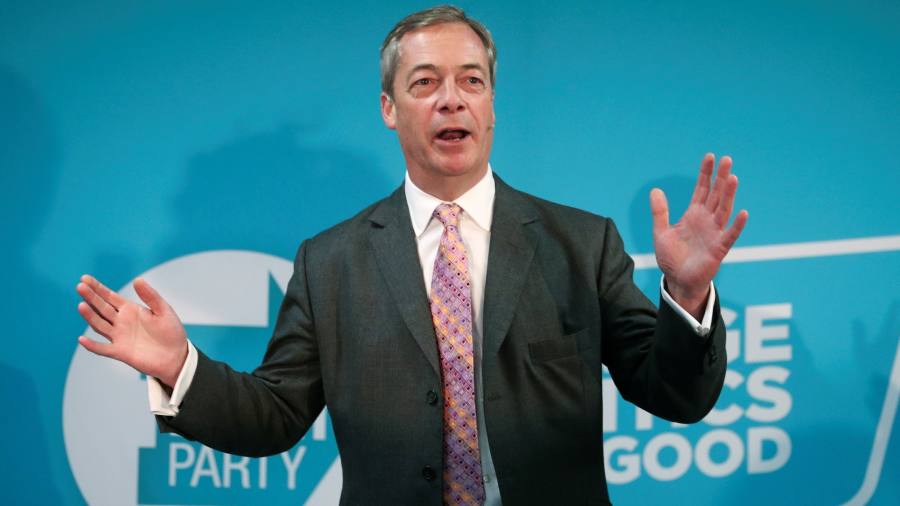
Receive free UK politics & policy updates
We’ll send you a myFT Daily Digest email rounding up the latest UK politics & policy news every morning.
Chancellor Jeremy Hunt has said the government will take action over banks blacklisting customers who hold controversial views after leading Brexiter Nigel Farage claimed his UK bank account had been shut down without explanation.
Hunt has asked City minister Andrew Griffith to investigate the practice of lenders closing down the accounts of individuals or companies whose views they disagree with.
“Banks and payment providers occupy a privileged place in society and it would be a concern if financial services were being denied to those exercising the right to lawful free speech,” Griffith told the Financial Times.
The Treasury opened a consultation into the matter earlier this year after rightwing commentator and journalist Toby Young complained that the Free Speech Union group he founded had its PayPal account frozen last September. PayPal did not immediately respond to a request for comment.
The government was set to respond to the consultation before the end of July, according to government officials. It is expected to recommend a more rigid notice period if lenders want to close an account and more information about why action has been taken.
Farage, former United Kingdom Independence party (Ukip) leader, has claimed he is being driven out of the UK by a pro-Remain banking establishment that has blocked his financial access.
Farage said on Thursday that his accounts with an unnamed “prestigious” institution were about to be closed down without explanation after 20 years as a customer.
In a six-minute video released on Twitter, Farage said he had been made to feel like a “non person” after seven separate lenders refused to let him open personal and business accounts.
“The establishment are trying to force me out of the UK by closing my bank accounts,” Farage claimed. “This is serious political persecution at the very highest level of our system.”
Ministers also want to reform the regime monitoring “politically exposed persons” (PEPs) to ensure it has not been applied too heavily. Politicians classified as a PEP are subject to tighter controls by banks to guarantee they comply with the law.
Treasury officials said the government had included measures last week in the financial services and markets bill to require regulators to distinguish between lower risk domestic PEPs and overseas ones, although these rules are not yet in place.
The government has also asked the Financial Conduct Authority to carry out a review into whether financial institutions are adhering to its guidance on the treatment of “PEPs” and to assess the suitability of current rules.
A banker at one high street lender said that most closures were the result of concerns such as the source of funds, or abusive behaviour towards staff, adding they were limited in what they could tell customers because of regulations against tipping off potential criminals.
The FCA has previously called out payment fintechs, which offer similar services to banks, for freezing access to customer accounts for too long without providing an adequate explanation.
Big banks were also under political pressure to increase savings rates, with the Treasury Select committee sending letters on Monday asking if they believed their products offered “fair value” to customers.